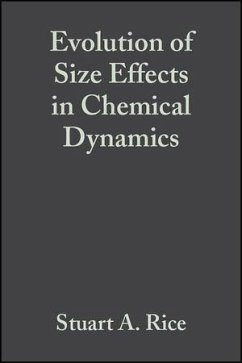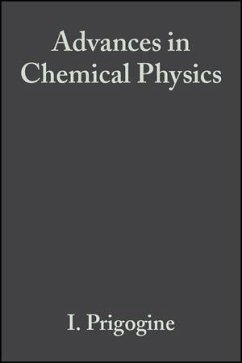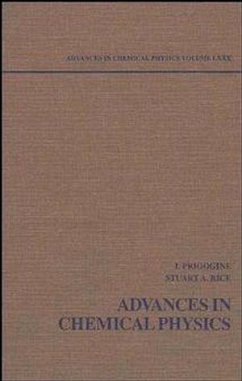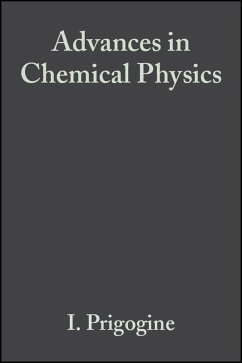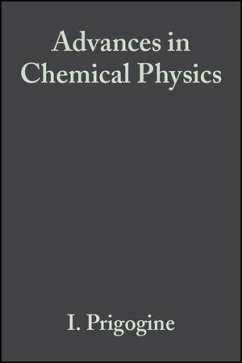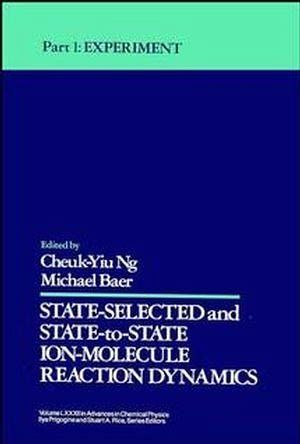
State Selected and State-to-State Ion-Molecule Reaction Dynamics, Volume 82, Part 1 (eBook, PDF)
Experiment
Redaktion: Ng, Cheuk-Yiu; Baer, Michael

PAYBACK Punkte
0 °P sammeln!
State-Selected and State-to-State Ion-Molecules Reaction Dynamics details the recent experimental and theoretical accomplishments in the field to date by some of its foremost researchers and theorists. Divided into two parts, each of which separately describe the experimental and theoretical aspects of the field, State-Selected and State-to-State Ion-Molecule Reaction Dynamics is an accessible, well organized look at a highly useful and emerging chemical specialty. Part 1, "Experiment," contains eight in-depth studies, which illustrate the key experimental work being done in the field today: *...
State-Selected and State-to-State Ion-Molecules Reaction Dynamics details the recent experimental and theoretical accomplishments in the field to date by some of its foremost researchers and theorists. Divided into two parts, each of which separately describe the experimental and theoretical aspects of the field, State-Selected and State-to-State Ion-Molecule Reaction Dynamics is an accessible, well organized look at a highly useful and emerging chemical specialty. Part 1, "Experiment," contains eight in-depth studies, which illustrate the key experimental work being done in the field today: * Chapter 1 provide a comprehensive review of the theory and application of inhomogeneous rf fields for the study of the dynamics of low-energy ion-molecules processes * Chapter 2 describes the application of multiphoton ionization (MPI) for the preparation of reactant ion states * Chapter 3 reviews the application of MPI schemes for state specific cross-section measurements involving transition metal cations * Chapter 4 describes the development of the threshold photoelectron secondary ion coincidence (TESICO) method * Chapter 5 presents the conceptual and practical aspects of a multicoincidence technique * Chapter 6 details the experimental results obtained using the photoionization and differential reactivity methods * Chapter 7 reviews the several recent crossed beam studies of charge transfer and collision-induced dissociation systems involving atomic and molecular ions * Chapter 8 is a survey of 15 years of high resolution crossed beam scattering of protons with atoms, diatoms, and poly-atomic molecules State-Selected and State-to-State Ion-Molecule Reaction Dynamics, Part 1: Experiment offers professionals a true state-of-the-science look at this fascinating and increasingly influential subject.
Dieser Download kann aus rechtlichen Gründen nur mit Rechnungsadresse in A, B, BG, CY, CZ, D, DK, EW, E, FIN, F, GR, HR, H, IRL, I, LT, L, LR, M, NL, PL, P, R, S, SLO, SK ausgeliefert werden.





